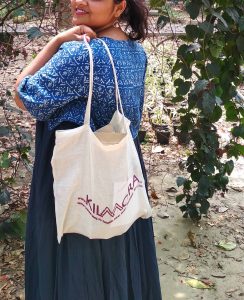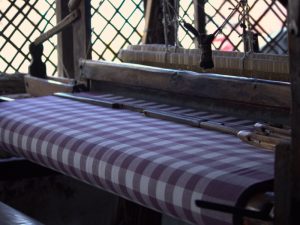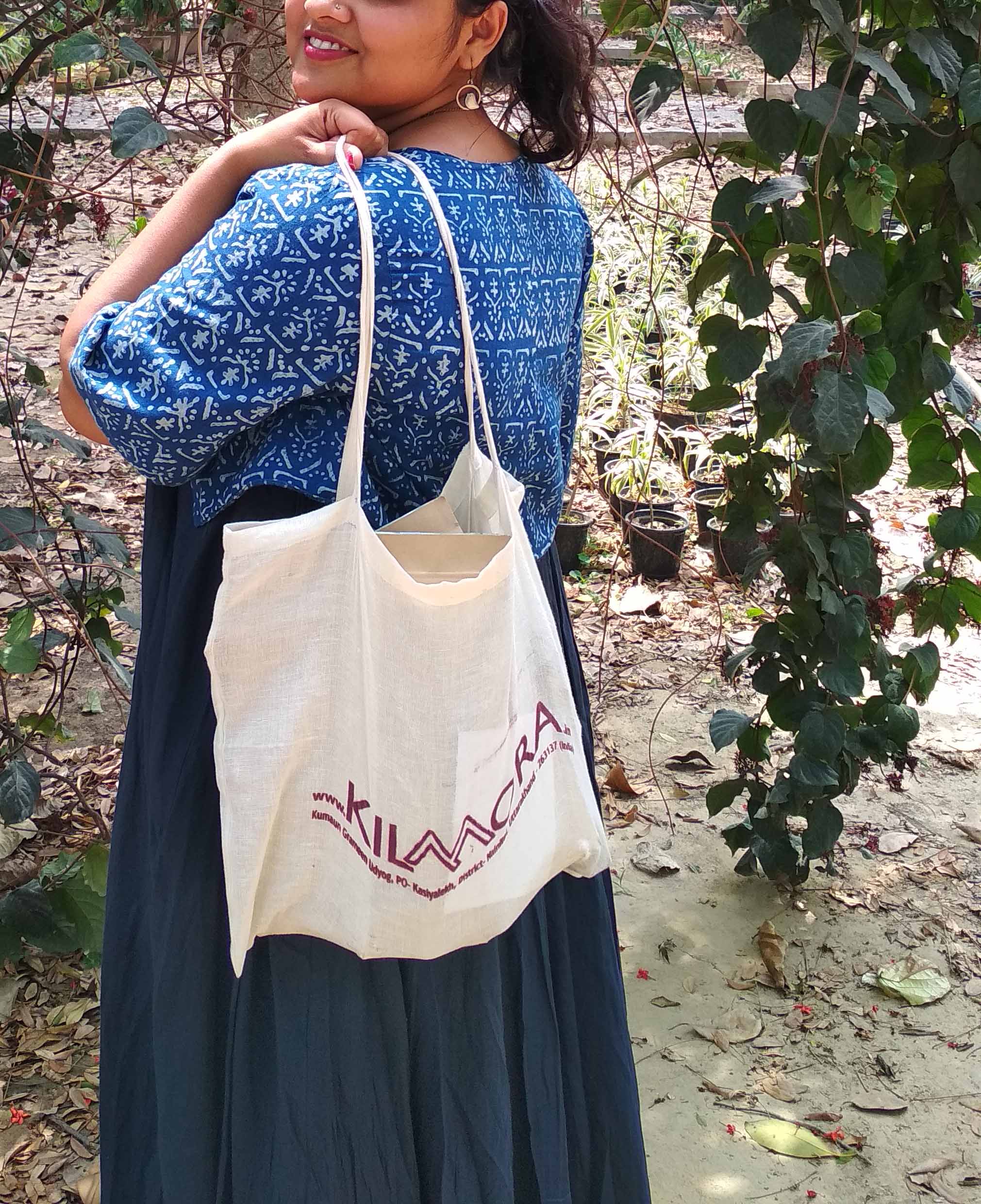We only have this one planet and we need to be less damaging. This Pandemic has brought this fact to light, stark and clearer than ever before. There’s not much to link the virus to sustainability except that the crisis has given us a taste of what global warming might be like.
While it’d be very wise and conducive for governments to make laws and regulations to meet the sustainable development goals, it is time each one of us take up some responsibility. The current crisis and it’s effects both good and bad makes us reflect on this very cruelly. If we fall back to our regular routine, the institutional steps taken to promote sustainability will seem crel and harsh too.
The textile and fashion industry is notoriously one of the most polluting ones out there, but it was not always so. And it need not always remain so either.
Here are a few things (fashionably speaking) that we can incorporate in our daily lives.
-
- Carry your own bags : Plastic pollution has a lot to do with single-use plastics. The Baragaon Weaves shop uses no plastic, Cotton bags are available for purchase. Nothing makes us happier than a patron carrying their own bags (sometimes the ones they bought from us). Many quirky and fashionable options of canvas jhola bags are now available, making it a statement of responsibility along with fashion.
- Repurpose & Reuse : Remembering our mothers and grandmothers getting Gudharis, bags and comforters made from their old silks. Reknitting or crocheting an old sweater into a placemat. Luckily in India examples of repurposing and reusing are plenty. Wasteful living is surely sinful. One can donate to an organisation who work with waste if DIYs don’t interest you as much.

- Support slow fashion : Shift in demand is the best solution to consumerism. Demand for Quality. Ask questions on who made the clothes and how much are they paid. Know the environmental costs of things you buy. What is usually cheap will be paid for by the next generation, and some seemingly expensive brands might be charging for the wrong reasons. Let’s shift the focus from brand names to brand impacts.
- Donate Don’t Discard : That slightly faded tee or the pants that ripped, let’s ensure nothing fashionable reaches the landfills. If a bit of repair work can make it fit to wear, why not? And in case you really don’t want it do donate. Organizations like Goonj, Uday Foundation, Share At Door Step, HelpageIndia, The Clothes Box Foundation have pick up centers in many neighborhoods.
- Natural Dyes and Organic fabrics: Natural plant-based dyes albeit limited in colour range and difficult to come across, are the best choice for an absolute impact-free clothing choice. There is also a range of organic, indigenous kinds of cotton to choose from. These significantly reduce the carbon footprints while providing huge employment to weavers, spinners, and farmers. Invest in Indian!

- Herbal/ Natural Detergents: Believe it or not detergents, bleaches and other washing chemicals are a big threat to marine life and a major cause of water pollution. It’s not only the industries but the wastewater for all our households when put together make a huge share. Reetha or soapnut is the best rescue for this one. Here’s a recipe from friends at Sasha.
- Less is More : As a business, we hate to say this, but we do truly believe the best way to be eco-conscious is to consume less, and consume smart. Buy only what you need, and what you simply fall in love with (eg: Baragaon Sarees :).
May we leave behind a beautiful planet for the next generation, May we never see another crisis of this kind. Together, let’s look forward and step back a little.


